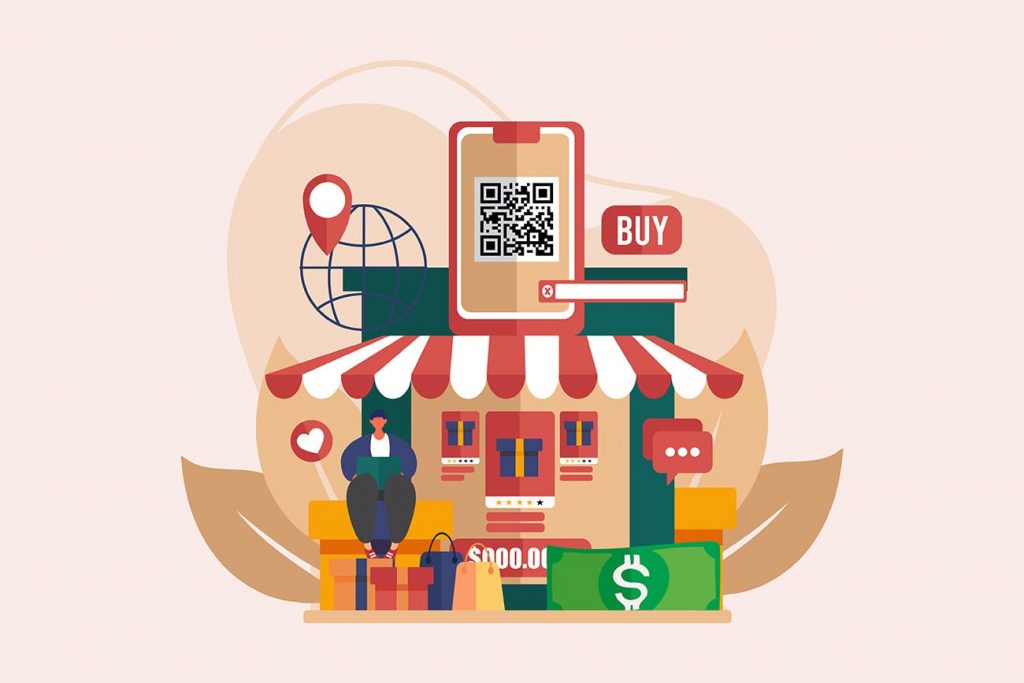In this article, we will talk about how you can maximize the revenue of your online store by applying upselling and cross-selling strategies.
I. Introduction
Upselling involves offering customers a higher-end product or upgrade option that would bring in additional revenue. Cross-selling involves offering complementary products or services to customers, encouraging them to spend more in a single transaction.
Benefits of implementing these strategies
1. Increased revenue: By offering higher-end products or complementary services, businesses can earn more per transaction.
2. Improved customer experience: Offering relevant products and upgrades can enhance the customer’s shopping experience and increase customer satisfaction.
3. Increased brand loyalty: Offering customers personalized and valuable experiences can lead to increased customer loyalty and repeat business.
Overview of the steps involved in maximizing revenue through upselling and cross-selling
1. Understanding your customer: By understanding your customer’s needs and interests, you can tailor your upselling and cross-selling strategies to them.
2. Product placement: Placing relevant products in strategic locations on your website can increase the visibility of upselling and cross-selling opportunities.
3. Personalised recommendations: Using customer data and analytics to make personalized product recommendations can increase the likelihood of a successful upsell or cross-sell.

II. Understanding Your Customer Base
Understanding your customer’s needs and preferences is the key to providing them with the right products and services. When you know what your customers are looking for, you can tailor your offerings to meet their specific needs, making them more likely to return to your store in the future. This not only increases customer loyalty but also helps to maximize your revenue.
Segmenting your customer base allows you to group your customers based on similar characteristics, such as demographics, purchasing habits, and product preferences. This information can then be used to personalize your marketing and sales efforts, resulting in more effective and efficient outreach. By understanding your customer segments, you can identify opportunities for upselling and cross-selling that are most likely to drive results.
Personalising your upselling and cross-selling strategies is crucial to maximising revenue. By tailoring your offerings based on the specific needs and preferences of your customer segments, you can make informed and relevant recommendations that are more likely to result in a sale. For example, if you know that a customer is interested in purchasing a new laptop, you could suggest accessories or services that complement the laptop, such as a laptop case or an extended warranty. By providing these tailored recommendations, you can increase the value of each sale and maximise your revenue.
III. Upselling Techniques
Upselling is a sales technique used to encourage customers to purchase a higher-end or upgraded version of the product they are currently interested in. The goal of upselling is to increase the average order value by selling a more expensive product than what the customer initially intended to purchase.
One of the most effective upselling techniques is to offer complementary products that would enhance the customer’s experience with the original product they are interested in. For example, if a customer is looking to buy a camera, you could offer them accessories such as a camera lens, tripod, or carrying case to complement their purchase.

Another effective upselling technique is to offer customers a higher-end or upgraded version of the product they are interested in. This could include features such as larger screen size, more storage capacity, or advanced software. By offering these upgrades, you can give customers the opportunity to purchase a product that better meets their needs and desires.
Another way to increase revenue through upselling is to present customers with bundles and packages that include multiple products at a discounted price. This not only offers the customer a better value, but it also increases the average order value and boosts your revenue. For example, if a customer is looking to buy a new smartphone, you could offer them a bundle that includes a case, screen protector, and car charger at a discounted price.
IV. Cross-Selling Techniques
Cross-selling is a sales technique where a business offers its customers related or complementary products along with the main product they are purchasing. This helps to increase the customer’s overall purchase value, as well as boost sales for the business.
By offering related products to your customers, you can increase the likelihood of them purchasing additional items. For example, if someone is buying a new camera, you could offer them a camera bag or a tripod as related products.
Another way to cross-sell is by suggesting items that will help complete a set. For instance, if someone is purchasing a new kitchen appliance, you could offer them a set of cooking utensils or a cookbook to complete the set.
Complementary products are those that enhance the main product being purchased. By offering complementary products, you can provide customers with a complete solution, which can result in a higher purchase value. For example, if someone is purchasing a new computer, you could offer them a mouse, keyboard or external hard drive as complementary products.

V. Implementing Upselling and Cross-Selling Strategies
As a small business owner, it’s important to be proactive about maximising revenue. One effective way to do this is by implementing upselling and cross-selling strategies into your sales process. These strategies can help increase the average order value, boost customer loyalty, and drive sales growth.
In today’s digital age, technology has made it easier than ever to implement upselling and cross-selling strategies. With the help of e-commerce platforms like VetrinaLive, you can automate the process and make it seamless for your customers. For example, you can use personalised recommendations, pop-ups and product suggestions to help customers find complementary items and upgrades.
It’s crucial to measure the success of your upselling and cross-selling strategies. You can use analytics tools to track the performance of your sales process and the effectiveness of your marketing campaigns. This will help you identify areas for improvement and make necessary changes to further boost your sales. Regularly monitoring the success of these strategies will ensure that you are continuously making the most of your sales opportunities and maximising your revenue.
Konklusjoner
Upselling and cross-selling are powerful revenue-maximising strategies that small business owners can leverage to increase their sales. By understanding your customer’s needs and preferences, you can personalise your strategies and offer complementary or related products that meet their needs. Integrating these techniques into your sales process and using technology to automate the process can help you achieve your goals more efficiently.
Implementing upselling and cross-selling strategies is not just about increasing revenue, it’s about creating a better customer experience. By offering relevant products that meet the customer’s needs, you build trust and strengthen their relationship. This can lead to repeat business, customer loyalty, and increased lifetime value.
In conclusion, maximising revenue through upselling and cross-selling strategies is an effective way to grow your small business. By taking the time to understand your customer base, personalise your strategies, and measure your success, you can achieve your goals and reach new levels of success.
So, start implementing these techniques today and watch your business grow!





